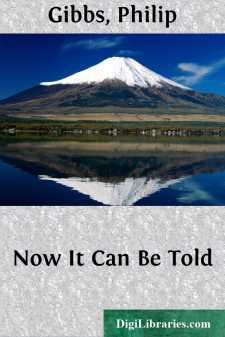History
- Africa 30
- Americas (North Central South West Indies) 50
- Ancient 68
- Asia 58
- Australia & New Zealand 8
- Canada 41
- Caribbean & West Indies 1
- Civilization 20
- Eastern Europe 12
- Europe 310
- Expeditions & Discoveries 60
- General 77
- Historical Geography 1
- Jewish 9
- Latin America 3
- Medieval 8
- Middle East 14
- Military
- Revolutionary 8
- Study & Teaching 5
- United States 353
- Western Europe 56
- World 13
Military Books
Sort by:
INTRODUCTION Tacitus held the consulship under Nerva in the year 97. At this point he closed his public career. He had reached the goal of a politician's ambition and had become known as one of the best speakers of his time, but he seems to have realized that under the Principate politics was a dull farce, and that oratory was of little value in a time of peace and strong government. The rest of...
more...
CHAPTER I STEAMING SOUTH R.M.S. 'Dunottar Castle,' at sea: October 26, 1899. The last cry of 'Any more for the shore?' had sounded, the last good-bye had been said, the latest pressman or photographer had scrambled ashore, and all Southampton was cheering wildly along a mile of pier and promontory when at 6 P.M., on October 14, the Royal Mail steamer 'Dunottar Castle' left...
more...
I RAISING THE REGIMENT During the year preceding the outbreak of the Spanish War I was Assistant Secretary of the Navy. While my party was in opposition, I had preached, with all the fervor and zeal I possessed, our duty to intervene in Cuba, and to take this opportunity of driving the Spaniard from the Western World. Now that my party had come to power, I felt it incumbent on me, by word and deed, to...
more...
by:
Johanna Brandt
THE PETTICOAT COMMANDO CHAPTER I THE SCENE OF ACTION When, on October 11th, 1899, shortly before 5 o'clock in the afternoon, martial law was proclaimed throughout the Transvaal and Orange Free State, South Africa, and after the great exodus of British subjects had taken place, there remained in Pretoria, where the principal events recorded here took place, a harmonious community of Boers and...
more...
by:
Sherwood Eddy
CHAPTER I In the midst of our work at a base camp, there came a sudden call to go "up the line" to the great battle front. Leaving the railway, we took a motor and pressed on over the solidly paved roads of France, which are now pulsing arteries of traffic, crowded with trains of motor transports pouring in their steady stream of supplies for the men and munitions for the guns. Now we turn out...
more...
CHAPTER I VERDUN Beneath the canvas of a huge hangar mechanicians are at work on the motor of an airplane. Outside, on the borders of an aviation field, others loiter awaiting their aërial charge's return from the sky. Near the hangar stands a hut-shaped tent. In front of it several short-winged biplanes are lined up; inside it three or four young men are lolling in wicker chairs. They wear the...
more...
by:
G. William Breck
Dere Mable Love Letters of a Rookie Dere Mable: I guess you thought I was dead. Youll never know how near you was to right. We got the tents up at last, though, so I got a minit to rite. I guess they choose these camps by mail order. The only place there flat is on the map. Where our tents is would make a good place for a Rocky Mountin goat if he didnt break his neck. The first day the Captin came out...
more...
by:
C. H. Thomas
INTRODUCTION Apart from the progress of the present Anglo-Boer war a world-wide interest has been excited also upon the question of its actual origin. Much disparity of opinion prevails yet as to how it was provoked and upon which side the guilt of it all lay. English statesmen of noblest character and best discriminating gifts are seen professing opposite convictions; one party earnestly asserting the...
more...
INTRODUCTIONWRITTEN largely between the shipping crisis of 1917 and the surrender of German undersea arms at Harwich on November 20, 1918, this book is an effort to record a seaman's impressions of the trial through which the Merchants' Service has come in the war.It is necessarily halting and incomplete. The extent of the subject is perhaps beyond the safe traverse of a mariner's dead...
more...
by:
Philip Gibbs
I When Germany threw down her challenge to Russia and France, and England knew that her Imperial power would be one of the prizes of German victory (the common people did not think this, at first, but saw only the outrage to Belgium, a brutal attack on civilization, and a glorious adventure), some newspaper correspondents were sent out from London to report the proceedings, and I was one of them. We...
more...











